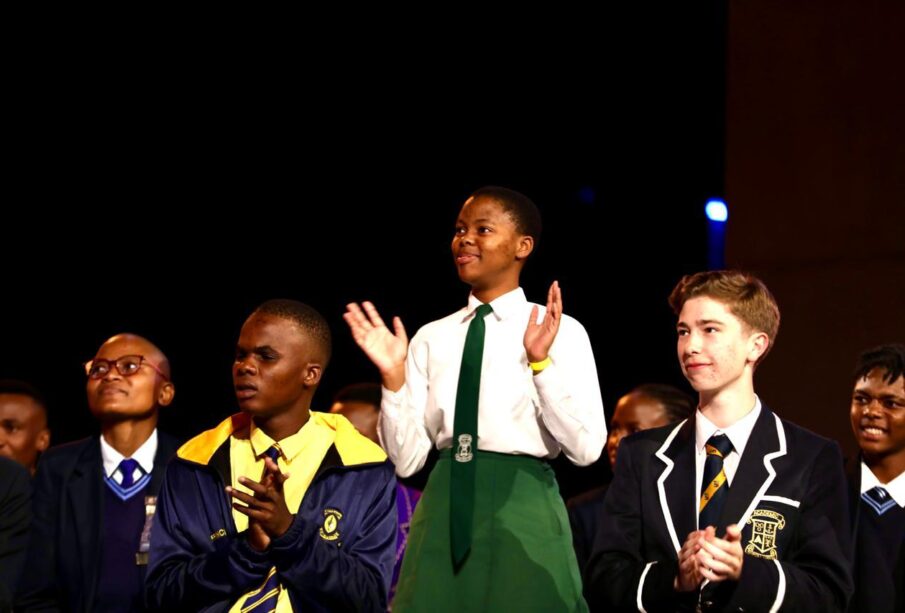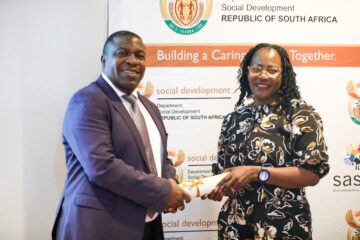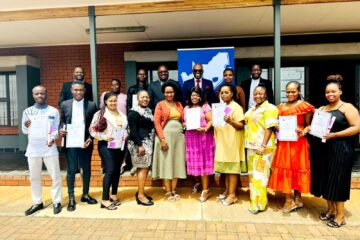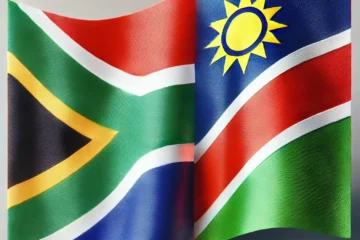A LOOK AT THE ESSENTIAL SAFETY NET OF SOCIAL GRANTS IN THE LENS OF THE CLASS OF 2024

Cuma Pantshwa
- On the first day of the National Senior Certificate (NSC) examinations, 882,253 learners began their assessments, with 79% being social grant beneficiaries, underscoring the impact of social grants on education amidst ongoing challenges such as poverty and the effects of Covid-19.
- Minister of Social Development, Ms. Sisisi Tolashe, extended her wishes for success to these learners, emphasising the positive influence of social grants on school attendance, educational attainment, and alleviating hunger.
- With a significant increase in social grant recipients over the past two decades, the programme has proven vital in supporting vulnerable households, as evidenced by a pass rate of 81.3% among grant beneficiaries in the 2023 matric exams.
882,253 learners embarked on their first day of National Senior Certificate (NSC) examinations on 21 October. Amidst the tough conditions this class has endured, particularly due to Covid-19, the class of 2024 consists of 79% social grant beneficiaries—696,886 learners receiving either a Child Support Grant, Care Dependency Grant, or Foster Care Grant. In a context of high poverty, inequality, and unemployment, grants have supported the livelihoods of the most vulnerable, including during the pandemic. Social grants have played an important role in alleviating poverty and inequality in South Africa (World Bank, 2021).
The Minister of Social Development, Ms. Sisisi Tolashe, wished social grant beneficiaries well as they navigate their NSC exams. Studies tend to find positive effects and highlight the benefits of the grants on children’s school attendance, educational attainment, and hunger (Heinrich et al., 2012; Williams, 2007).
According to the General Household Survey 2024, the percentage of households and individuals benefiting from social grants has seen a significant increase over the past two decades. In 2003, only 12.8% of individuals and 30.8% of households received grants. By 2019, these figures had risen to 30.9% and 50.0%, respectively.
As of the end of September 2024, there were 19,267,413 social grants paid to beneficiaries, of which 13,191,145 were Child Support Grants (CSG), 170,390 were Care Dependency Grants (CDG), and 276,305 were Foster Care Grants (FSG).
In South Africa, the Child Support Grant aims to assist parents in lower-income households with the basic needs of their children. To qualify, a child under 18 years old must live in South Africa with a primary caregiver—either a parent, grandparent, or anyone mainly responsible for looking after the child—who is not paid for this care and who either is a South African citizen or has permanent residency.
KwaZulu-Natal remains the highest province where the Class of 2024 matriculants receive a social grant, and in Mtubatuba, a community in KZN, Ms. Nozipho Mabika, a Grade 12 teacher, shares the challenges and triumphs faced by learners and families in her community. “We face numerous challenges that require us to play multiple roles. During this critical time of year, we teachers are as anxious as our learners,” Ms. Mabika stated, noting that many learners come from child-headed households, which adds further burdens on them.
“Our goal is to see them succeed, raise the school’s and district’s flag high, but more importantly, to help them fulfil their 12-year dream of completing matric and advancing to the next stage. The collaboration between teachers and social workers at our school has been incredibly valuable. Many of our learners are social grant beneficiaries, and in some cases, they have to take time off from school to renew their grants or access essential services.”
Over the years, social assistance has continued to strengthen families. According to records, in the 2023 academic year, 556,133 social grant beneficiaries wrote their final matric exams, and 451,578 passed, achieving an 81.3% pass rate. This success rate is a testament to the substantive positive impact of comprehensive social security on the health and well-being of children.
Ms. Mabika highlighted the resilience of her students, who have beaten the odds amid adversity; one major issue in her area is teenage pregnancy. “We’ve established a strong working relationship with social workers and the local clinic in our community to ensure that disruptions are minimised and that the learners’ education is prioritised. This partnership helps us address not only academic concerns but also the socio-economic challenges our learners face, ensuring they receive the holistic support they need to succeed.”
Last year’s matric results indicate that learners from poorer households continue to improve and qualify for university entrance. Those receiving some form of social grant achieved more than 160,000 distinctions, with over 200,000 qualifying for university entrance. Furthermore, more than 65% of the total bachelor passes obtained were from learners in no-fee paying schools.
In South Africa, social grants are means-tested, unconditional on employment status, and well-targeted, with approximately one in three South Africans being direct beneficiaries. To date, the Department of Social Development, through SASSA, has invested R46,677,286,420.00 in the Class of 2024 from 1997 to the current financial year.
“We understand the path that you have travelled and wish you the best of luck as you write your examinations,” stated Minister Sisisi Tolashe.














